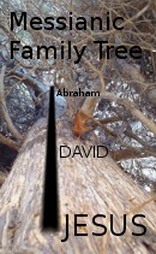 “The book of the genealogy of Jesus Christ, the son of David, the son of Abraham.” (Matthew 1:1) The introduction of Jesus as the son of Abraham, the man God blessed to father His chosen people, and David, the king after God's own heart, immediately draw up prophecies and promises made to Hebrews or followers of Judaism. However, all of this is only pertinent and meaningful information to a Jewish audience who would have been well versed in the Old Testament salvation history, its prophesies of a redeeming Messiah, and its promise of the restoration of David's kingdom. Thus, it is not best to “retain the notion that this book was an anonymous work,” simply because the gospel does not mention an author and there is a general supposition that Matthew's name was only added in 125AD (Sailhamier, 437)1, but to ascribe the work to a Jewish author at the very least and best to accept the personal name of “Matthew” (Levi) based on the exegetical clues littered throughout the three gospels as more than coincidental (Elwell, 720). A Jewish author, such as Matthew, would have seen the value and necessity of beginning his gospel written to Jews, as showing Jesus Christ as the one who has come to fulfill the promises of the Old Covenant (Testament), primarily because the Jews were anticipating the coming of a Messiah through David's line (Howell, 4). Since it is “widely agreed that Matthew was written in a situation of conflict between Jewish Christians and non-Christian Jews, between 'church' and 'synagogue',” (Walton, 222)2, then Matthew's genealogical opening would serve as an apologetic drawing an immediate correlation between the Old Testament and Jesus Christ. On this foundation, Matthew goes on to show that Jesus is the one who completes “all the hopes of the nation of Israel expressed in the Lord's promises to Abraham and David” (Howell, 4). Jesus Christ's story is told as a retelling of Israel's history and by extension the centuries long fulfillment of God's covenant to Abraham. The use of Jewish terminology and particularly “Kingdom of Heaven” directly convey that Jesus is the heir to David's throne whose kingdom which shall last forever (2 Samuel 7:16). In both instances, repeated references to Old Testament prophesies about the Messiah are linked to Jesus and events in His life (Elwell, 725). Ultimately, this genealogy serves as the perfect transition between the narrow Jewish stream of salvation through one man, nation, people (Howell, lecture) to the now overflowing river of salvation that will wash over the whole Gentile world through its culmination in Jesus Christ and His victorious work on the cross.
0 Comments
Leave a Reply. |
AuthorBrett Yardley: Categories
All
Archives
January 2019
|

